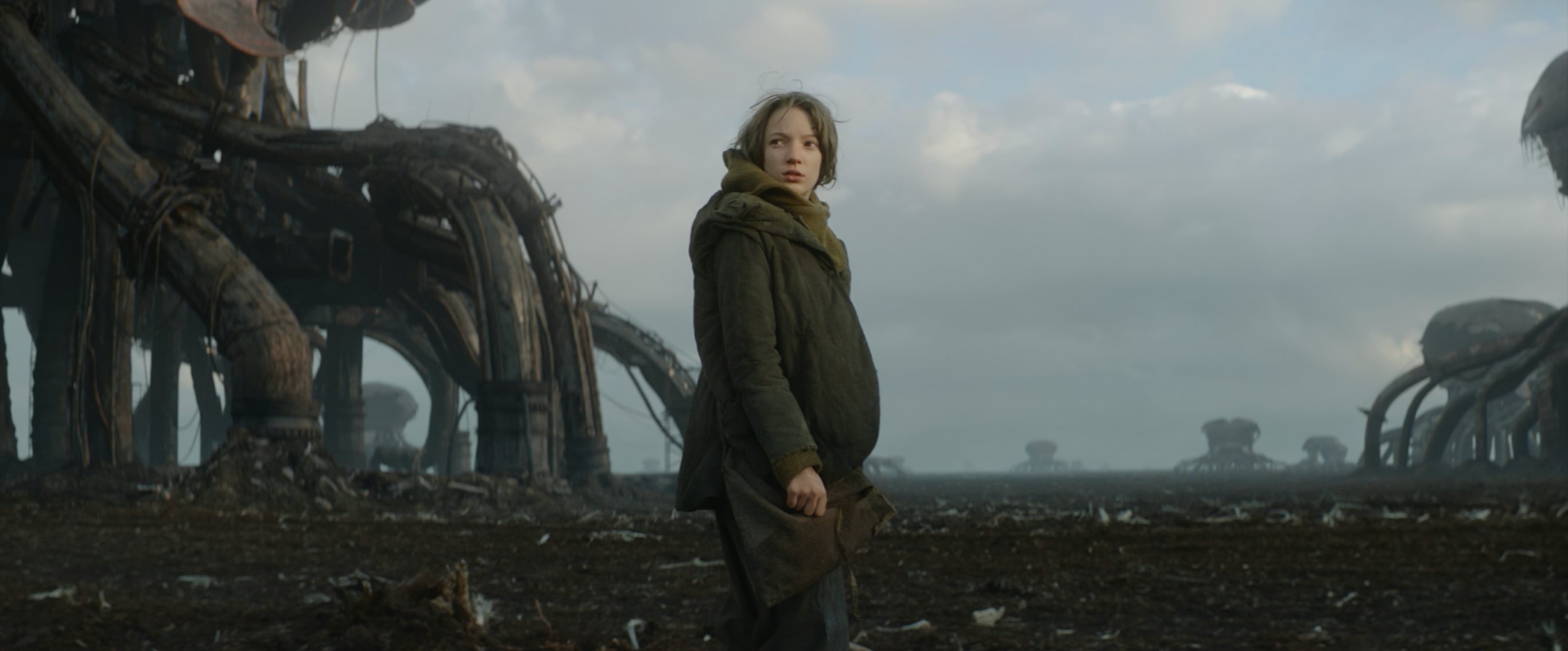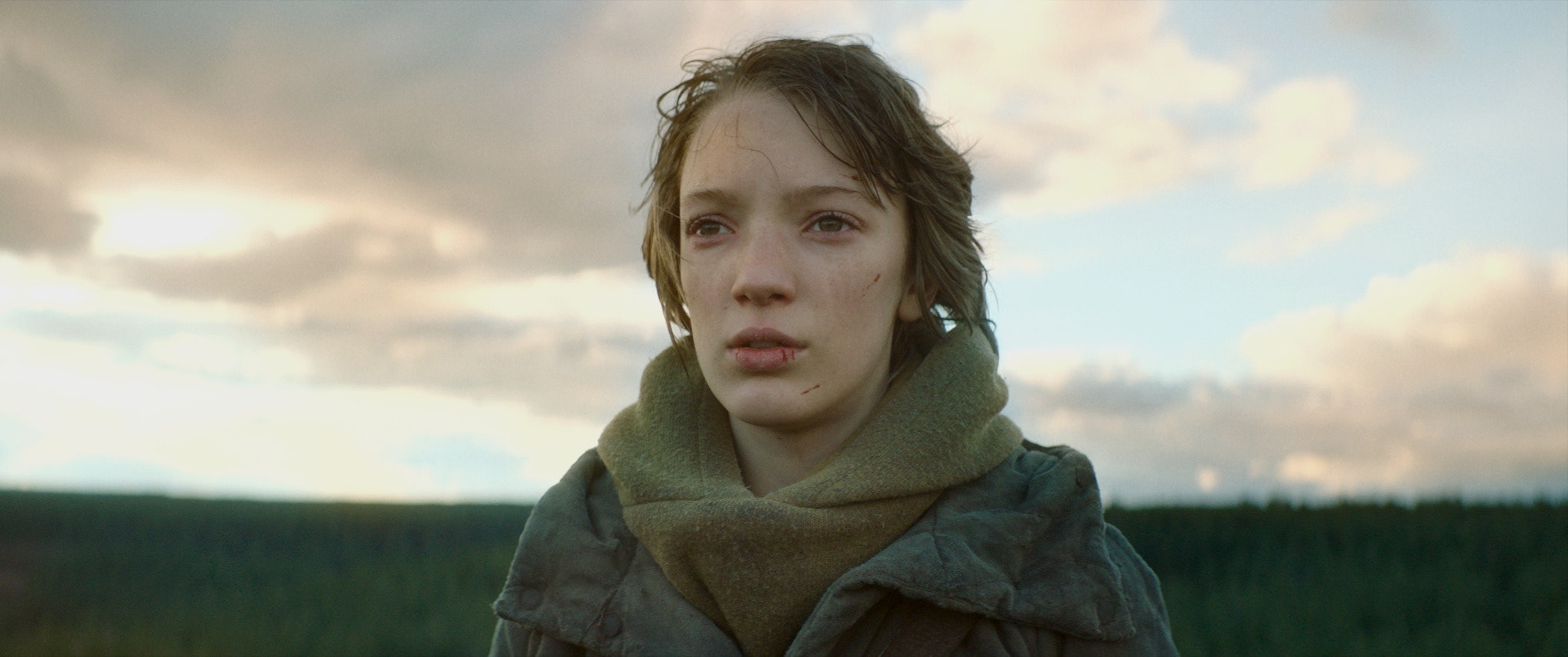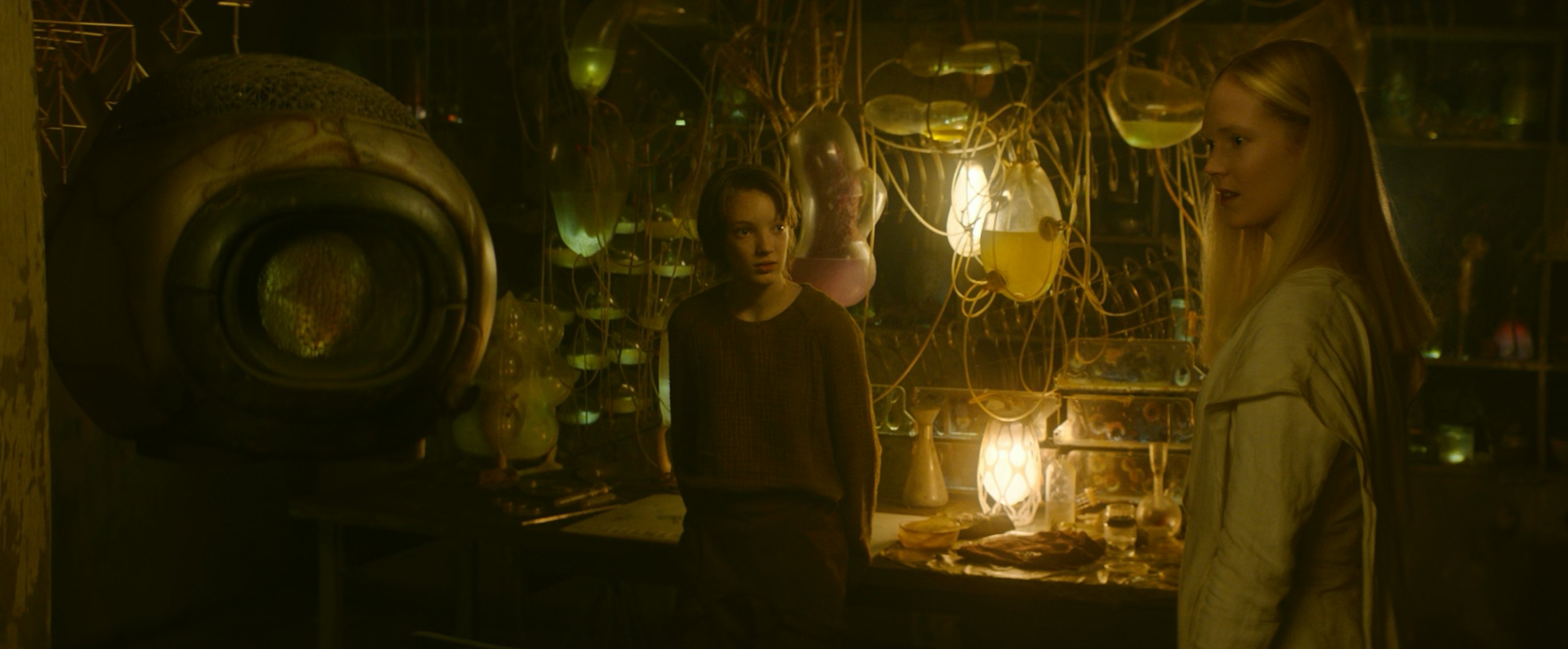
If you needed to improve your life, would you leave in search of a better one? Or would you try to make the life you already have better?
That dilemma drives Vesper, the beautiful biopunk film from writer-directors Kristina Buožytė and Bruno Samper.
Set in a distant and dark future after Earth’s ecosystems collapsed, a teenager named Vesper (Raffiella Chapman) cares for her ailing father when a strange encounter puts her on the path to finding a new and life-saving food resource.
While Vesper’s worldbuilding is complicated — and often takes a backseat to the movie’s drama — it leads to an emotionally enriching ending. The message is that, despite overwhelming odds, we can still seed hope for a bountiful future that will benefit all humanity. Even when things are so bad they feel hopeless, Vesper says that all we need to do is look harder within.
Warning: Spoilers for Vesper ahead.

In Vesper, one of the key problems facing Earth’s desolate ecology is failed genetic technology. Oligarchs hide behind cities called “Citadels” and sell seeds that are, according to the prologue, “coded to produce only one harvest.” People starve for long periods, and survive on a dwindling supply of food.
Vesper, a farmer and amateur hacker, conducts experiments that could reverse all of humanity’s woes. Early in the film, Vesper sneaks into her uncle Jonas’ (Eddie Marsan) farm, where she steals a stash of “germinating seeds.”
She then uses these seeds for an experiment involving samples from the synthetic Camellia (Rosy McEwen). While studying the samples, Camellia plays a tune from a musical instrument that causes the “locked” bacteria in the seeds to unlock. While the science is dubious and Vesper doesn’t do a phenomenal job of explaining all this, the point is that Vesper finds a way to “unlock” Citadel seeds. “I can make them fertile,” she says. “We’ll never starve again.”
This also explains why Camellia and her human maker, Elias (Edmund Dehn), were fleeing a Citadel where they were wanted, and attempting to reach another. Camellia held the key to altering seeds, and Elias hoped to trade this knowledge for safe passage into another Citadel.
At the end of the movie, both Vesper’s father and Camellia sacrifice themselves so Vesper can escape the pursuit of Citadel forces. Distraught, Vesper buries the altered seeds, believing there’s no use for them in a world without her loved ones. But when a small group of children find her, Vesper changes her mind. It’s still worth fighting for the future.
Together, Vesper and the children journey to a makeshift tower built by an outcast society of nomads. Vesper climbs the tower, symbolically demonstrating her ascension in this desolate world, and lets the seeds be scattered to the wind. Vesper has let go of the past, and planted the seeds that will save humanity.

Much of Vesper relies on arthouse stylings, using abstract symbolism and visual metaphors more than plain-eyed plot resolution. What allows the movie to succeed is a combination of Buožytė and Bruno Samper’s empathetic directing, Chapman’s engaging performance, a breathtaking final shot by cinematographer Feliksas Abrukauskas, and the stirring score of French composer Dan Levy.
These elements swirl together into a finale that isn’t all about cleaning up plot points, but imparting an important lesson: Our bleak present need not decide our future.
Vesper is out in theaters and VOD on September 30.







